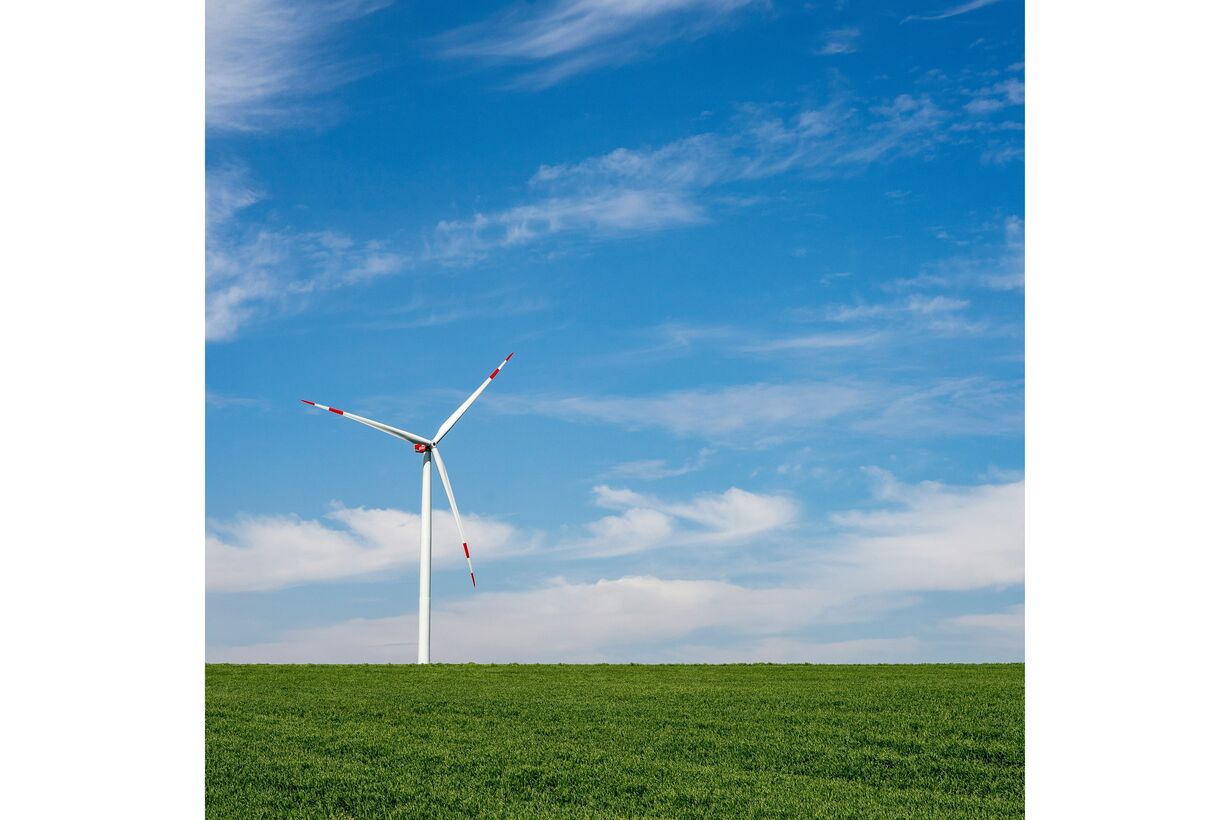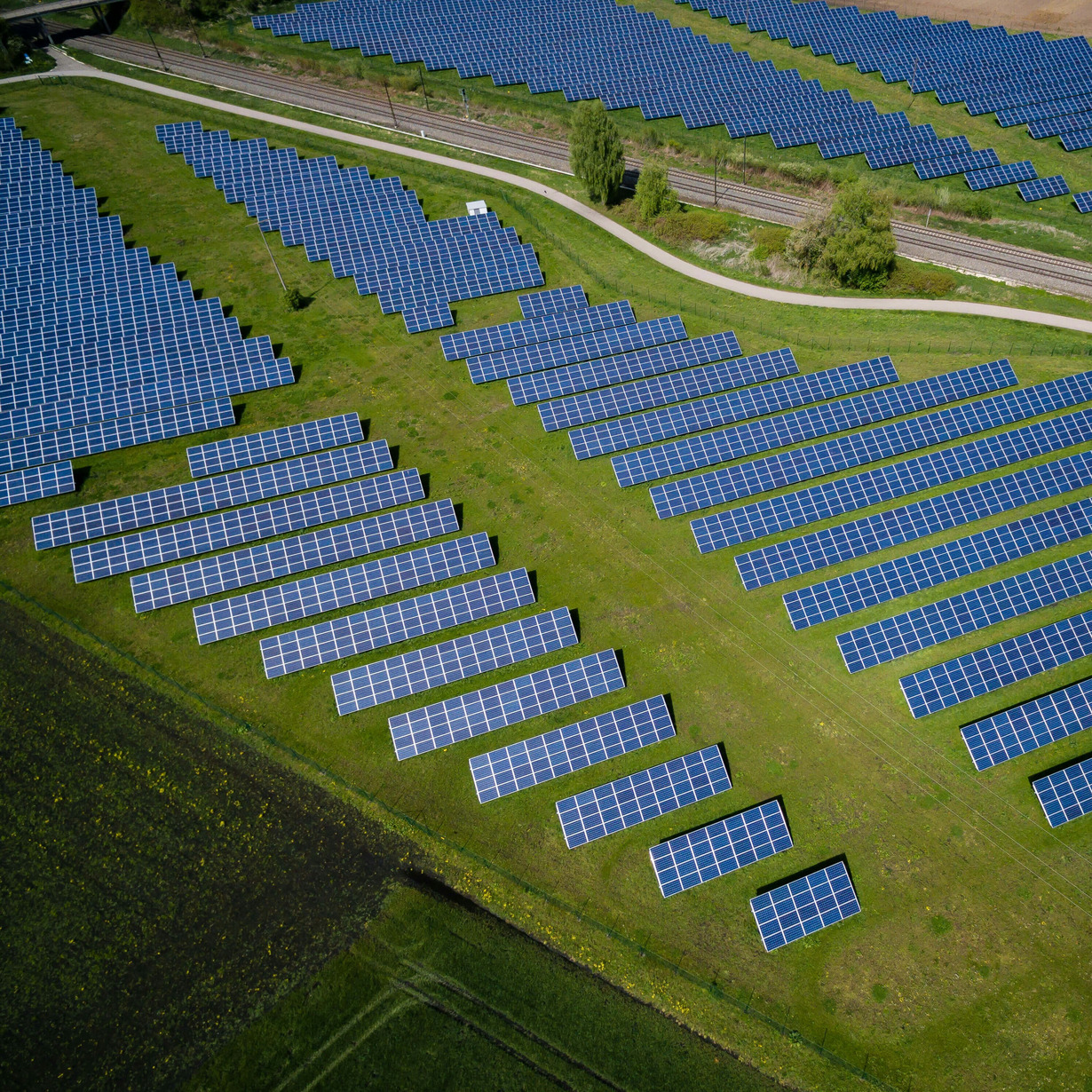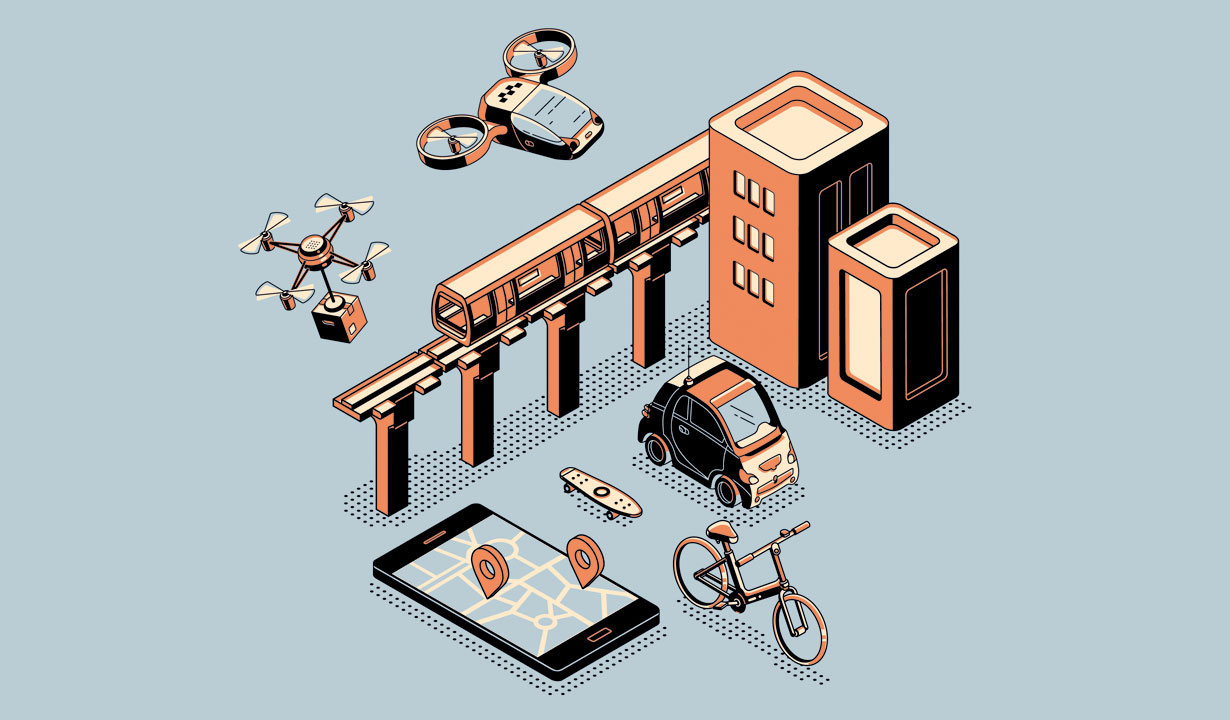The need for mobility of people worldwide continues to increase. This is due to economic factors, but also to migration, tourism, and the increasing global networking of many people. Thus, the associated problems such as climate-damaging emissions, overloaded transport infrastructures, accidents, and noise are becoming more acute. These developments are concentrated in urban agglomerations, which are subject to further densification worldwide, and are increasingly hindering the creation of livable environments. At the same time, exactly the opposite developments are threatening the quality of life and mobility in rural areas. Electromobility, including electrically assisted bicycles and scooters, flying taxis, and even inner-city cable cars are intended to address these problems.
ITAS primarily investigates new mobility concepts, which deal with technical innovations on the one hand and with changing mobility patterns of people on the other. For example, we analyze the possibilities of autonomous vehicles as well as the ethical challenges of their use in urban environments, but also in the surrounding areas.
Sustainability of biofuels
ITAS also intensively studies the sustainability of second generation biofuels (synthetic fuels from agricultural and forestry residues) and third generation biofuels (fuels from algae). In the projects Energy System 2050, reFuels, and Photofuel, the entire “life cycle” is examined and compared with that of conventional fuels and battery electric vehicles.
Automated driving and digitalization
Digitalization is regarded as an important factor for innovations in the mobility system. It enables a better networking of different modes of transport for multi- and intermodal transport services. It is intended to improve road safety or help to establish new mobility services. ITAS studies the possible design of such innovations and the effects that can be expected after their implementation. In the VI-DAS project, for example, researchers have analyzed the ethical and social aspects of insuring automated vehicles and created a guide for technology development. This provides an overview of possible environmental consequences as well as the effects on the distribution of safety risks or the social participation of elderly, physically impaired and socioeconomically disadvantaged people.
Socio-technical change and future mobility
Technical and social change are strongly interconnected and influence each other – especially in the mobility sector. Against this background, work at ITAS focuses on technical and social developments and their potentials to change established mobility patterns and enable future mobility concepts (e.g., personal air transport systems or urban ropeway systems). In the process, researchers develop options and strategies for their political design and implementation.
Urban research
Urban technology assessment examines urban innovation and transformation, e.g. the development of climate-neutral and smart cities or their socio-technical resilience. The research interest focuses on the interplay between urban technologies, culture, and social movements.
Experts
- Alternative drive concepts (electromobility/hydrogen):
Dr. Marcel Weil - Automated driving and digitalization:
Torsten Fleischer - Biofuels:
Dr. Martina Haase - Socio-technical change and future mobility:
Jens Schippl - Urban research:
Dr. Ulrich Ufer
Further contact
Jonas Moosmüller
Public relations
Tel.: +49 721 608-26796
E-mail

Connecting Initiatives for Rural Communities, Upscaling their Sustainable Energy
more
Analysis and solution concepts (C2CBridge)
more
Research Infrastructure Services for Renewable Energy
morePublications on the topic
Multi-criteria analysis for energy planning in Ecuador: Enhancing decision-making through comprehensive evaluation
2025. Renewable Energy, 241, 122278. doi:10.1016/j.renene.2024.122278
Public participation GIS scenarios for decision-making on land-use requirements for renewable energy systems
2025. Energy, Sustainability and Society, 15 (1), Art.-Nr.: 18. doi:10.1186/s13705-025-00518-y
Agri-PV: Ist das wirklich das große Ding? Die Schattenseiten der Goldrandlösung
2024, June 18
Akzeptanz beschleunigt, Gesetze auch: Lenkt die Akzeptanzforschung überhaupt die Gesetze der Energiewende?
2024. FVEE-Jahrestagung "Die Energiewende mit Forschung beschleunigen", 08.-09.10.2024, 22–30, ForschungsVerbund Erneuerbare Energien (FVEE)


